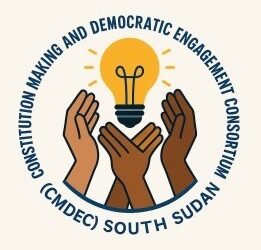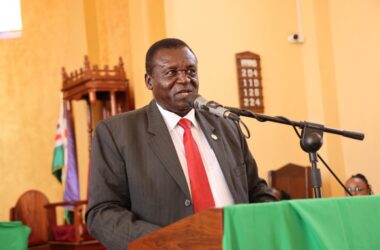By William Madouk
Traders attribute the skyrocketing prices of commodities to several key factors, including fluctuations in the exchange rate, increased taxation, and excessive fines imposed by the Juba City Council authorities.
Mr. Elias Mugagga, Chair of the Ugandan community in South Sudan, stated that exchange rates and multiple tax collections are the main factors for price increments in the markets.
“The issue that is disturbing us now is the issue of dollars, but there is something that we have forgotten as traders who are operating in South Sudan—we have the issue of revenues,” he said.
He urged the chairman of the National Chamber of Commerce to engage taxmen in unifying levies to avoid double taxation.
Mr. Mugagga made this remark on Wednesday during a consultative meeting organized by the Chamber of Commerce to know why prices remain high when the dollar drops and vice versa.
He added that if the exchange rate were to be stable, commodity prices might have gone down.
“In Revenue [Authority]—they charge you fingerprint; they charge you what! All the money has to be put on the commodities. So, I am requesting Hon. Chair at least to speak with those sectors to bring taxes down,” he pleaded.
Also, Noreldin Ismail, representing Sudanese traders at Jebel Market, said economic instability was the major factor but added that some traders are greedy and not honest in trading.
“Firstly, there is indeed greediness among traders, whether wholesalers or retailers. And from my observation retailers don’t reduce their prices even if things change,” he noted.
He called on the government to get rid of black-market dealers, who now control and determine the hard currency exchange rate.
“Government can fix their own exchange rate, commercial forexes, but black-market dealers have hard currency in their hands that made them have control.” He added, “If traders go to banks, forexes you will not get, but dealers can give it to you instantly.”
“And here is the question: Where do those black-market dealers get these dollars from? So, if we don’t remove the middleman who is in control of the dollar and can hike the exchange rate as they wish, if we do not get rid of them, expect no change,” he added.
Meanwhile, Yemane Beyone Abraham, the public and marketing manager representing the Eritrean community, said a task force must be formed to study and come up with solutions.
“The challenges need to be scientifically identified first; this is only an opinion; what are the challenges facing traders on the ground? Are they greedy? They don’t care for low-income people? Maybe I don’t know, but we need to identify,” he argued.
He hinted that a task force would encompass traders, economists, and the business community to study and present concrete encounters and solutions to these hurdles.
Abdullahi Hassan Ali, CEO of the Somalian community, attributed the high prices to global price increments, expenses, tax, transportation, and volatile exchange rates.
He explained that the price increment is not only in South Sudan but a global issue that is affecting most nations.
“Why dollar is affecting? For instance, in Uganda and Kenya, the dollar is not affecting too much, why South Sudan? Because in South Sudan almost everything is imported from outside. This is why all traders need to have a dollar to bring goods,” he asserted.
Mr. Jeremiah Akob Muruanga, Secretary-General for the Kenya Business Association in South Sudan, exposed once essential goods are exempted in Nimule—the officials at Nesitu do intercept.
He argued that even when prices drop boda-boda and tricycle (Rickshaw) riders maintain prices
In rebuttal, the Chairperson of the South Sudan National Chamber of Commerce, Industry, and Agriculture (SSCCIA), Lado Lukak, said his office is working hard to ensure that all taxes are reasonable.
He urged the business community to put greed aside and serve the citizens with pure hearts.




